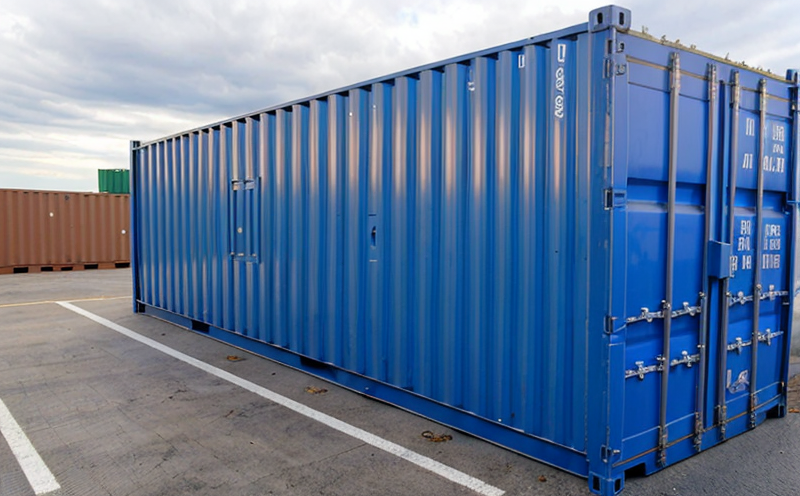EN ISO 287 Plastics Moisture Regain Testing of Storage Containers
The EN ISO 287 standard is a critical benchmark in ensuring that storage containers made from plastics are reliable and consistent. This test evaluates the moisture regain properties, which are essential for maintaining product integrity over time. The process involves preconditioning specimens to specific humidity levels before measuring their mass after exposure to controlled humidity conditions.
Storage containers often need to withstand varying environmental conditions without compromising their structural integrity or performance. Moisture regain testing helps manufacturers and quality assurance teams ensure that the plastics used in these containers can maintain optimal properties despite fluctuations in humidity. This is particularly important for applications where containers are exposed to different climates, such as shipping goods across diverse geographical regions.
The test procedure outlined in EN ISO 287 involves several key steps: preconditioning specimens, exposing them to controlled humidity conditions, and measuring the mass change due to moisture absorption or desorption. The results provide insight into how well the material resists changes in humidity, ensuring that storage containers remain effective for their intended purposes.
Understanding the importance of this testing is crucial for industries reliant on high-performance plastics. For instance, pharmaceutical companies depend on robust packaging to maintain the stability and efficacy of their products. Similarly, food producers require reliable containers to preserve the quality and safety of perishable items during transit.
The test results from EN ISO 287 are not only valuable for ensuring product performance but also for compliance with international standards. This ensures that manufacturers can confidently meet regulatory requirements while maintaining a competitive edge in their respective markets.
For R&D engineers, this testing provides critical data on material behavior under various humidity conditions, which is essential for developing new formulations and improving existing products. Compliance officers benefit from the assurance that materials used comply with international standards, thereby mitigating risks associated with non-compliance.
Applied Standards
| Standard | Description |
|---|---|
| EN ISO 287:2013 | Plastics — Determination of moisture regain by gravimetric methods. |
Environmental and Sustainability Contributions
The EN ISO 287 testing ensures that storage containers made from plastics are not only reliable but also environmentally responsible. By minimizing the impact of moisture regain, manufacturers can reduce waste and improve product longevity, which is crucial for sustainable practices.
This testing helps in selecting materials that have minimal environmental footprint throughout their lifecycle. It supports the development of products that meet stringent environmental regulations while enhancing overall sustainability efforts. The use of plastics with controlled moisture regain properties leads to more efficient resource utilization and reduced emissions associated with manufacturing and disposal.
Competitive Advantage and Market Impact
The ability to perform EN ISO 287 testing accurately provides a significant competitive advantage in the market. It allows companies to offer products that meet international standards, thereby enhancing their reputation and trustworthiness among clients.
By demonstrating compliance with this standard, businesses can differentiate themselves from competitors who may not adhere to such rigorous testing protocols. This can lead to increased customer confidence, potentially resulting in higher market share and better brand loyalty.
The results of these tests are also valuable for regulatory bodies and industry associations that monitor product quality and environmental impact. Compliance with standards like EN ISO 287 is often a prerequisite for certification, which opens doors to international markets where such certifications are required.





